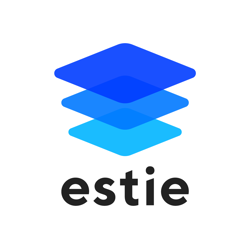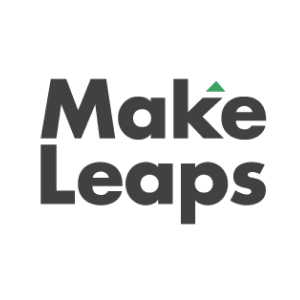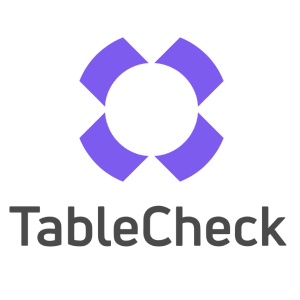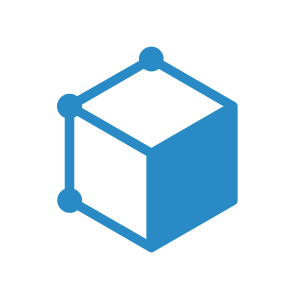Updated February 6, 2025
Money Forward’s English Transformation: A Blueprint for Engineering Teams in Japan in 2025
Money Forward’s English Transformation: A Blueprint for Engineering Teams in Japan in 2025
※ 本記事の日本語版はこちら
In this article: 📝
- The Challenge
- Introducing the Team
- Why Switch to a Global Engineering Team?
- The “Englishnization” Initiative
- Hiring Foreign Engineers: The Early Stages
- 2021: A Pivotal Year
- Team Nikko: A Role Model for Englishnization
- English Integration: Scope and Approach
- Hiring Top Global Engineers: Money Forward’s Success Story
- Overseas Offices and Collaboration with Global Teams
- Diversity & Inclusion: Creating a Comfortable Work Environment for Foreign Engineers
- Onboarding and Relocation Support
- Interpreting and Translation Support: Learnings from the Globalization & Communication Partners Team
- "TERAKOYA": Japanese Language Learning Support for Foreign Engineers
- Overcoming Cultural Barriers: The Secret Behind Teamwork at Money Forward
- Appointing Foreign Members to Leadership Positions
- Achieving "Englishnization" of the Engineering Organization
- Looking Ahead to the Future
- Pioneering the Path for Global Companies: Opportunities Created by Englishnized Engineering Teams
Money Forward is one of Japan’s top tech companies.
And they started out with a primarily Japanese-speaking engineering team. But in 2021, the company decided to transition to a global, English-speaking team.
This was a major undertaking. I’m proud to say that Japan Dev could assist them by introducing 42 English-speaking software engineers in just 2.5 years. And with over 40% of their engineering team now composed of non-Japanese members, they’ve managed to transform the engineering team into a highly diverse group.
But of course, hiring was far from the only area that required attention. In this article, I’d like to go in-depth on exactly how Money Forward transitioned their engineering team into an English-first work environment. We’ll look at the problems, the challenges, and the strategies the company used to overcome them.
As one of Japan’s most successful tech companies, Money Forward’s story is a must-read for any company striving to build a global engineering team. It contains valuable insights on how to leverage diversity and create a robust, effective team of engineers in Japan!
So let’s dive in.
The Challenge
Money Forward is a leading fintech company in Japan. They offer over 60 software services including the household budgeting app "Money Forward ME" and a back-office SaaS for businesses "Money Forward Cloud". They also offer system development services for financial institutions — they’ve built a wide product portfolio that serves both individuals and corporate clients.
In fall of 2021, Money Forward announced an ambitious plan.
In order to strengthen Money Forward’s development capabilities and global reach, this was their bold, new goal: to fully transition its entire engineering organization into an English-first environment by the end of November 2024. They called it the “Englishnization” initiative.
And so they began to actively hire non-Japanese-speaking engineers and shift their focus to creating an English-centered engineering team.
While this transformative step was poised to unlock immense growth opportunities for the company, it also came with significant challenges.
Eric Turner, founder of Japan Dev, had the opportunity to conduct multiple interviews with members of Money Forward’s HR team in October 2024, to dive deep and uncover the full story behind this impressive transition.
Here’s some more background about the team.
Introducing the Team
Koichi Honda - Division Manager of the Globalization & Communication Partners Division. Over the past three years, Honda-san has led the transition of Money Forward’s English-speaking engineering team, establishing programs for employees’ English language learning and building an internal interpretation and translation system.
Rui Yamamoto - Deputy Division Manager of the Talent Growth Division. Yamamoto-san supports onboarding and provides English training programs for their international engineers.
Ryoji Hashiguchi - Deputy Division Manager of the Global Talent Recruiting Division. Hashiguchi-san manages everything from hiring international new graduate engineers, to the onboarding process for new members.
Takeshi Hoshina - Division Manager of the Global Talent Recruiting Division. Hoshina-san leads strategy development and execution for the globalization of the engineering organization.
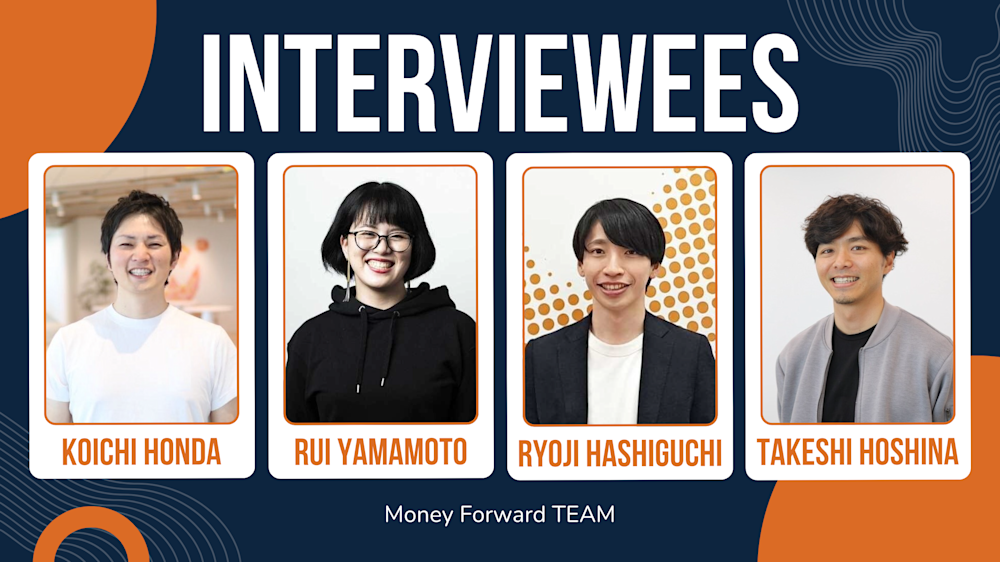
We interviewed Honda-san, Yamamoto-san, Hashiguchi-san, and Hoshina-san from Money Forward’s HR Team.
Why Switch to a Global Engineering Team?
Money Forward is driving the globalization of its engineering team for three main reasons.
1. Shortage of Engineers in Japan
Japan faces a significant shortage of engineers. This is the challenging reality that many Japanese companies are dealing with. Money Forward’s leadership knew that relying on domestic talent was not going to be enough to support the speed at which the company was developing.
So, in order to attract top engineers worldwide, transitioning to a globally accessible, English-speaking environment became essential.
2. Building a Foundation for Global Expansion
With plans for international expansion in the near future, Money Forward saw the importance of adopting a global perspective and building a competitive development structure. Having a team of talented engineers from around the world provides a strong advantage in entering global markets.
3. Fostering Diversity
The benefits of having engineers from diverse cultures and backgrounds help bring in new insights and spark innovation. This diversity enriches the company’s culture and helps create a more inclusive work environment for more people. An increase in foreign engineers within the company was also expected to attract talented and ambitious Japanese engineers who were looking to gain globally relevant experience.
The “Englishnization” Initiative
Money Forward CTO, Takuya Nakade, began thinking about creating a global engineering team in September 2017. This was around the same time the company went public on Tokyo Stock Exchange’s MOTHERS market (Market of the High-Growth and Emerging Stocks).
Nakade-san saw that in order to develop and provide services on par with FAANG companies and other U.S. tech giants, Money Forward needed to create a work environment that appealed to a wider range of talented engineers.
Taking hints from Japanese companies like Rakuten and Mercari, who were already working towards globalization, Nakade-san decided that the top priority for Money Forward would be to unify the engineering team under a common language — English.
Hiring Foreign Engineers: The Early Stages
In the initial phase of hiring foreign engineers, Money Forward focused on engineers who had some degree of Japanese proficiency. And they started by placing these engineers into smaller teams, like the “CTO Office” to help them adjust smoothly to their work environment.
Once these foreign engineers got more familiar with the work, the company gradually transitioned them into other engineering teams.
But minor language barriers aside, the onboarding process for the foreign engineers was similar to that of the Japanese engineers. Each member was provided with the support and guidance needed to take on increasingly complex tasks and become important contributors to the team.
Especially for the Japanese-speaking engineering teams who had limited English skills, this method of integrating foreign engineers was an important step.
Starting with bilingual foreign engineers was a strategic first move. These engineers would be able to serve as a bridge between the Japanese engineers and any non-Japanese speaking members who joined in the future.
2021: A Pivotal Year
At first, Money Forward was focused on hiring foreign engineers who could speak Japanese.
However, this changed in July 2021 when Takeshi Hoshina joined the company and established the Global Talent Recruiting Division. Under Hoshina-san’s leadership, the company shifted its strategy to begin actively hiring engineers who didn’t speak any Japanese. This was the start of Money Forward’s intent to truly globalize and transform its engineering department.
Then, in autumn of 2021, the company announced its goal to transition the entire engineering team to an English-speaking environment by the end of November 2024.
Employee Reactions to the Englishization Initiative
For many Japanese engineers who were accustomed to their workflow, it was undoubtedly a shock to hear that they would now need to learn and use English in their daily work lives. However, many employees were open to the change and embraced it with great positivity.
Their general acceptance could have been due to the fact that other major Japanese tech companies — like Rakuten and Mercari — had already seen success in adopting English as their corporate language.
Although this transition to English was a challenge for many employees, it was also viewed as a necessary step for their career advancement, and a chance for personal and professional growth.
The leadership team, including the CEO and CTO, played a vital role in driving the “Englishnization” of the engineering department. They were able to consistently communicate the importance of globalization and the impact it would have on the company’s future. The clarity of their mission and level of commitment they showed helped motivate the entire organization to get behind the initiative.
But with over 400 engineers working mainly in Japanese at the time, it was still no easy task to manage. Money Forward focused on two key strategies to navigate the change:
Creating Role Models for Englishnization
Providing Comprehensive Support for English Learning
These two strategies became the pillars for Money Forward’s efforts to integrate English into its engineering organization.
Team Nikko: A Role Model for Englishnization
In July 2021, Money Forward took an important step towards their goal by forming its first English-speaking team, “Team Nikko.”
“Nikko” is a well-known Japanese tourist destination, and it was chosen for its simplicity and familiarity with international audiences. The primary language for this team was English, and it was designed to foster an inclusive environment for engineers from a variety of backgrounds.
One reason for the creation of Team Nikko was to establish a successful role model for Englishnization within the company. The team gathered members from more than 10 countries, with three-quarters of the members being non-Japanese. They also deliberately brought on foreign members who did not speak any Japanese and limited the number of Japanese members on the team. This was to ensure that English would be used as the default language for communication, and by doing so, they were able to create an environment where international engineers could collaborate smoothly.
The knowledge and experience gained from Team Nikko were documented in guides and videos, which went on to become valuable resources for other teams when they started their Englishnization process. The materials included information on conducting Scrum development in English and videos that demonstrated the level of English required for daily operations.
Some Japanese members who were brought onto Team Nikko were also not proficient in English, and they were provided support to improve their language skills. This was used as an exploration of effective strategies for helping Japanese members adapt to an English-speaking environment.
As a result, Team Nikko was able to share their learnings with the entire organization, enabling multiple engineering teams at Money Forward to transition to English by the end of 2022.
English Learning Support for Japanese Engineers
At the same time that Team Nikko was implementing and sharing their results, Money Forward was also supporting English integration by creating an English learning system for their Japanese engineers.
Teaming up with experienced instructors from English coaching schools, they created a four-stage curriculum tailored to the engineer’s skill level. The curriculum includes the use of standardized speaking test tools, such as TOEIC® and CEFR-aligned PROGOS®, to assess the learning progress.
Tests were administered regularly, and the members could move on to the next stage if they pass the necessary requirements:
Stages 1 and 2: Master the foundational vocabulary and grammar points (target TOEIC score of 700)
Stage 3: Learn structured speaking patterns and practice speaking through online group lessons that are output-focused
Stages 4 and 5: Increase conversational skills and hone practical communication skills through online lessons
And since they knew that guided lessons alone were not enough to ensure consistent improvement, they provided coaching on effective learning methods so members could prioritize self-study. The members were asked to form small study groups of 4-5 people, and they had weekly feedback sessions in these groups to supplement their independent studies.
To maintain a good balance between work and learning, Money Forward allowed engineers to dedicate up to three hours every day to study English. This unique policy helped engineers keep improving while keeping up with their workload.
Lastly, each team set a shared goal for the Englishnization of their team. This helped foster a strong sense of unity as they worked towards their respective deadlines.
English Proficiency Standards and Requirements
Money Forward has established concrete benchmarks for the English skills that are required for work, using the following criteria:
TOEIC - 700 points or higher: This is the minimum benchmark for daily reading and listening skills. It includes the ability to independently use translation tools like DeepL to check for accuracy and make edits.
PROGOS - B1 or higher: The member should be able to participate in business meetings, understand the discussion, and contribute to the conversation about relevant topics.
TOEIC - 800 points or higher / PROGOS - B1 High or above: The member is proficient and able to actively participate in meetings, facilitate discussions, and conduct 1-on-1 meetings in English. (This is the minimum standard of English expected for managerial roles.)
In order to achieve English integration, the engineering teams were expected to fulfill the following conditions:
All team members achieve TOEIC scores of 700 points or higher.
Around 80-100% of the team gets PROGOS B1 or higher.
The team is prepared to work with members who don’t speak any Japanese, and maintain team functionality in an English speaking environment.
Aiming for True English Proficiency
Koichi Honda, Head of Money Forward’s Globalization & Communication Partners Division, talked about the nuances of learning English. He said, “The level of English proficiency varies depending on the purpose of communication. It’s relatively easier to learn and speak English for presentations, since it’s a one-way route of communication. But when it comes to discussing and exchanging opinions in English, the level of difficulty significantly increases”.
In the past, people would mostly focus on getting high English test scores, but Honda-san believes that this should only be used as a starting point. He says that true English proficiency is “the ability to effectively communicate your intentions to others”, even if it’s not perfect in terms of grammar or vocabulary. So it’s crucial to continue practicing English and actively increase opportunities to use the language.
Encouraging a Culture of Having Fun while Learning English
Honda-san mentioned that, along with implementing concrete stages and goals, he finds it easier for engineers to improve their English skills when they gamify their progress.
He says, “The Money Forward engineers like to use apps to track and level up their English skills, and they proactively share their progress with each other. Regardless of their English level, many members also take the initiative to communicate with their foreign colleagues. Everyone is enthusiastic about building friendships”.
Additionally, there are members on the business teams who have experience living and working overseas who make a special effort to engage with the foreign members. So naturally, English is being used not just in the engineering teams but across all other departments to some extent.
These daily interactions have a positive effect on the organization as a whole and further accelerates Money Forward’s globalization.
English Integration: Scope and Approach
There aren’t many major tech companies in Japan that have succeeded in adopting English as their primary language for engineers. But there are a few notable examples, including Rakuten and Mercari.
Rakuten transitioned their company’s entire internal communications to English in 2010, while Mercari gradually incorporated English into their company, starting from the engineering teams.
Money Forward’s chosen method is to focus their English efforts specifically on its engineering organization.
This is mainly for two reasons:
The first is that a majority of Money Forward’s customer base is composed of Japanese individuals and businesses, making it necessary for the business teams to operate primarily in Japanese. English integration in these teams is a lower priority compared to other departments.
The second reason is that Money Forward’s organizational culture is bottom-up rather than top-down. The company believes that emphasizing a voluntary adoption of English will encourage more natural and effective results. While it’s certainly possible for a company to take a top-down approach and enforce rapid English adoption across all roles, such major changes also come with risks. Many employees may struggle to adapt, causing increased anxiety towards using English, and overall high turnover rates.
Instead, Money Forward chose to focus on gradual integration, starting with the engineering team. Through providing continual support in English learning for Japanese members and implementing changes team by team, their goal is to create a culture where communicating in English is enjoyable for everyone.
In practice, the engineers at Money Forward are highly motivated and thrive in the company’s open and autonomous environment. This is apparent in their communication style, for example, where the engineering teams have over 30,000 emojis registered in their Slack workspace. It’s a testament to the friendly and vibrant communication that takes place among team members, and having this foundation has made the English integration process a lot easier.
It’s important to note that although the Englishnization initiative started with the engineering team, product development also takes place outside the engineering team. So Money Forward is also working towards expanding English integration to other closely related departments, such as designers and product managers, using the knowledge that they gained from their experience working on English integration and education with the engineering team.
Hiring Top Global Engineers: Money Forward’s Success Story
To further ensure that non-Japanese members can feel welcomed at the workplace, Money Forward has also focused on promoting Diversity, Equity & Inclusion (DEI),
The measures taken to support a diverse workforce include creating a Culture Deck to clearly communicate company values. They established Human Rights Policies and a DEI statement, demonstrating a strong commitment to diversity.
They made space for prayer rooms to accommodate those with different cultural and religious backgrounds. They also conducted regular intercultural training to encourage respect and understanding between the employees.
When it came to finding and hiring talented international engineers, Money Forward has found success through using Japan Dev. Over approximately two and a half years, from spring 2022 to summer of 2024, they hired 42 foreign engineers through Japan Dev.
Money Forward was able to share their goals with a wide audience through Japan Dev’s company profile and by being featured on our blog. At Japan Dev we often share articles that highlight companies with sought-after benefits and characteristics. For example, we’ve showcased companies that offer language learning opportunities for their engineers in articles, as well as support for working parents, or companies that encourage OSS (open-source software) contributions. Through these articles, the company’s efforts are showcased to talented engineers around the world.
While the reality of recruiting internationally from Japan often means that it’s difficult to compete with U.S. salaries, for instance, there are still many engineers who are genuinely interested in working in Japan. This is largely due to the proliferation of Japanese culture, amongst many other reasons. For globalizing companies like Money Forward, a key point to attracting global talent includes building an inclusive and diverse company culture, providing benefits, and being able to quantify the challenges and growth opportunities.
Money Forward’s efforts are an example of successful recruitment of global talent, and their initiatives are a model for other Japanese companies looking to do the same.
Overseas Offices and Collaboration with Global Teams
In addition to their domestic offices in Tokyo, Nagoya, Kyoto, Osaka, and Fukuoka, Money Forward also has overseas offices in India, and Hanoi and Ho Chi Minh in Vietnam. Here’s how they established their overseas offices and how they’ve been collaborating across these international borders.
Background: Establishing Offices Overseas
Money Forward decided early on that they wanted to utilize the skills of talented international engineers to help transition to agile development. As a result, they established overseas offices before completing the Englishnization of their Japan-based team.
In 2018, Money Forward set up a local subsidiary in Vietnam, and in 2019, they established a product development center in Ho Chi Minh. By 2022, they created their second branch in Hanoi. In three years, they were able to hire over 100 engineers, making the Vietnam teams a critical component to Money Forward’s product development.
A major factor to the success in Vietnam can be attributed to the fact that they decided to set English as the official language from the start. This helped maintain efficient communication and collaboration between the local branches and across borders.
Then in September of 2021, Money Forward started recruiting engineers without Japanese skills for their Japan-based offices. This policy opened doors to a global talent pool, and now Money Forward hires engineers from all over the world.
The Role of Overseas Offices
At Money Forward, overseas offices are not considered “offshore locations”. From early on, the company has positioned its overseas offices as product development partners on the same level as its Japan counterparts. They maintain a sense of unity through regular global meetings and events.
In the past, it was common for companies to have each location be responsible for separate aspects of product development. However, the approach at Money Forward has evolved into a collaborative style where teams work together across international borders. This change has improved communication between locations and made agile development processes even smoother.
The team's slogan, "Let’s make it together!" perfectly embodies their globally collaborative spirit and serves as a driving force for strengthening partnerships between the various branches.
Addressing Time Zone Differences
One of the biggest challenges in establishing a global system is managing time zone differences. For example, a 9 a.m. training session in Japan would mean a very early 5:30 a.m. start for the team in India.
To address such challenges, Money Forward works to create schedules that accommodate all teams without unnecessary strain. This means making adjustments to meeting times and leveraging online tools.
Honda-san also highlighted this point, explaining, "We are offering global training and meetings that prioritize efficiency while still considering the well-being of the teams."
Diversity & Inclusion: Creating a Comfortable Work Environment for Foreign Engineers
Onboarding and Relocation Support
To create an environment where international engineers can easily relocate to Japan, Money Forward put a lot of effort into establishing their onboarding and relocation support systems.
When welcoming team members from overseas, the company provides comprehensive assistance that goes beyond basic education and training to ensure a smooth transition.
Rui Yamamoto, who is in charge of onboarding and training, reflected on her experience helping support new foreign engineers when she first joined the company in 2022.
"In April 2022, we welcomed four new graduate engineers who were completely unfamiliar with Japan. They couldn’t speak Japanese and were living in the country for the first time. On top of that, there were also mid-career hires whose relocation to Japan had been delayed by COVID-19. This made coordination for everyone’s relocation very complicated and time-consuming."
In May 2022, an additional 50 foreign engineers joined the company. This prompted a swift pivot from conducting onboarding in Japanese as per usual, to providing it entirely in English for the first time.
Yamamoto-san recalls the rapid pace of these changes:
"New members joined us from Brazil, India, Vietnam, and many other countries. I focused mainly on welcoming everyone warmly on orientation day, saying, 'Welcome to Money Forward!' and dedicating myself to the training role. However, other HR team members were in charge of managing visa procedures and relocation support for more than 50 people on a short timeline. They worked around the clock to ensure everyone could join the company with no issues. Back then, we had very few staff in the back office capable of handling such a global situation. It felt like working at a small startup, building and organizing everything from scratch."
Despite these initial challenges, the HR team at Money Forward has continuously refined their onboarding and relocation processes to create a work environment that is welcoming for foreign engineers.
Today, the relocation support system includes various measures to ease the transition for new hires, including a one-time allowance upon arrival, prearranged temporary housing, assistance with the search for long-term housing through real estate agencies that offer English support, and help with essential tasks such as opening bank accounts. These efforts help make sure that foreign engineers can settle into their new lives in Japan with ease, which is a critical component of their success in the workplace as well.
Interpreting and Translation Support: Learnings from the Globalization & Communication Partners Team
Money Forward has grown to be a major organization, with over 700 members in their engineering team alone. To ensure seamless communication within such a large, diverse team, the company formed the "Globalization & Communication Partners" team.
Establishing an Efficient Support System
When asked how Money Forward is able to provide language support across the organization despite limited resources, Honda-san says, “Transforming a primarily Japanese-speaking organization into a bilingual one is a significant challenge. We’ve adopted a phased approach, tailoring our interpreting and translation support based on the importance and urgency of meetings. For example, critical announcements and messages for all employees are always presented in both English and Japanese. This makes sure that foreign engineers feel equally included. And for important meetings that require verbal communication, we provide interpreters until the teams feel they are able to conduct meetings confidently in English."
Promoting Independent Translation with AI Tools
Due to the limited resources for providing interpretation and translation support, the team members are also encouraged to utilize AI tools to independently handle English communications.
Honda-san explains their approach: “Our resources are finite. So we’re constantly sharing best practices for using AI tools like ChatGPT for translation. This helps team members build the skills to handle English communication on their own.”
Implementing Practical Measures to Foster English Usage
"It’s essential to create an environment where members can naturally communicate in English," Honda-san noted.
For instance, the team has established guidelines for their Slack communications, encouraging messages to always be sent in English first. Channels that include non-Japanese-speaking members are set to use English exclusively. Honda-san noted that fostering an environment for day-to-day practice is the key to improvement.
Providing Opportunities to Learn and Use Practical English
Money Forward also focuses on creating opportunities for the Japanese and foreign members to interact, since a big goal is for everyone to be able to naturally communicate in English and in an enjoyable environment.
Honda-san shared some examples of their efforts, “For instance, during office expansion projects, we’ve hosted events where members paint walls together or engage in regular cultural exchange activities. This was a fun way to do team building and communicate in English. These experiences helped increase interactions between the foreign and Japanese members, and it motivated the Japanese members to learn how to speak naturally in English”.
Money Forward is building a strong foundation for the company’s globalization efforts by providing their members with interpretation and translation support, along with guidelines on how to independently improve their communication skills.
"TERAKOYA": Japanese Language Learning Support for Foreign Engineers
Not only does Money Forward support Japanese employees with their English learning, they also provide opportunities for foreign employees to learn Japanese.
Before 2021, foreign engineers were expected to work in Japanese. But since the decision to shift the engineering team’s internal communications to English, Japanese language proficiency is no longer a requirement for foreign engineers at Money Forward.
However, it’s well understood that having a good understanding of the Japanese language can make life in Japan a lot easier — and a lot more fun. So the company introduced “TERAKOYA”, a volunteer-based initiative where Japanese employees can assist foreign members in learning Japanese.
This program pairs one Japanese employee with one foreign employee, and gives the foreign employee an opportunity to learn from the Japanese employee. They can learn basic Japanese as well as workplace practices. Outside of language learning, the groups often have more casual interactions too, like having lunch together.
"TERAKOYA" is more than just a language learning program. It provides an opportunity for cultural exchange and helps employees build relationships within the workplace. Through this initiative, foreign employees naturally acquire the skills and knowledge necessary for living in Japan, while also strengthening ties with their Japanese colleagues.
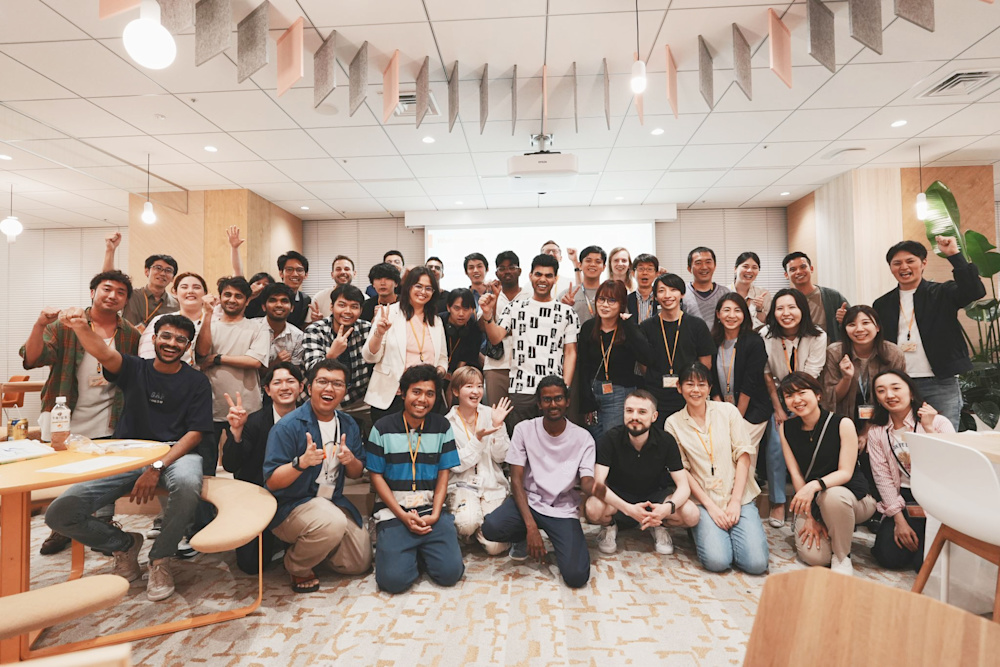
The Money Forward team gathered at TERAKOYA, a volunteer-based cultural exchange initiative for foreign and Japanese members.
Overcoming Cultural Barriers: The Secret Behind Teamwork at Money Forward
Supporting Global Teams: A Culture of Gratitude and Dialogue
What stood out the most during our interview with Money Forward’s HR members was the lack of divisions between the Japanese and international team members at the company.
Yamamoto-san recalls, “We’ve had our share of challenges, of course. In particular, it’s important to mention that our international members come from diverse backgrounds, which adds to the complexity.
Many people come from India, Indonesia, Vietnam, Europe, and other countries where, just like their Japanese colleagues, English is not their native language. This means that there is a variety of English accents and even communication styles.
While Japan is a high-context culture and some other countries might have low-context cultures, there is a wide range in between these different styles of communication, which can make mutual understanding more difficult”.
Despite these cultural and linguistic differences, Yamamoto-san emphasizes the importance of practicing deliberate and thoughtful communication. She believes this is needed to ensure that your intentions are appropriately conveyed to others.
Due to cultural gaps, some misunderstandings and confusion naturally arose in the beginning. However, Yamamoto-san notes that these issues can be resolved through consistent dialogue and feedback whenever the problems occur.
By repeating this communication and feedback process, Yamamoto-san has observed that any problems that arise tend to get solved quickly. It helps that they have a culture of expressing gratitude at Money Forward — saying “thank you” is deeply ingrained. They find that it helps to foster mutual respect among team members. This mindset of appreciation as a foundation for communication helps overcome cultural differences and build a strong sense of teamwork.
Common Divisions That Occur in Global Organizations
Hashiguchi-san explains, “Our foreign engineers tend to form strong bonds with other colleagues from the same country, which isn’t necessarily a bad thing. Considering they’ve left their home countries in order to work in a foreign place, having colleagues with shared backgrounds is undoubtedly reassuring.
Even so, the engineers all make an effort to actively interact with members from other countries as well as their Japanese team members. If issues do arise, they’re most likely problems that are common even in entirely Japanese teams, so the factors are largely unrelated to nationality.
Overall, the increasing number of international engineers has not created major divisions within the engineering team. The challenge moving forward is to build and maintain communication between the primarily English speaking engineering team, and other departments where Japanese remains the dominant language.”
Initiatives to Foster Communication
The HR team at Money Forward stresses that active communication was a key point for overcoming challenges during those periods of big change. To achieve this, they started requiring employees to work in the office at least twice a week.
Previously, employees were only asked to come to the office at least once a week. However, to encourage more opportunities for interaction and collaboration, the company raised the minimum to twice a week. Although it’s common for engineers to prefer remote work, many now enjoy working in the office too, according to the HR team.
For example, an in-office lounge space offering free drinks after 6 p.m. has become a popular spot for members to play board games or have casual conversations. Many also take the chance to have lunch together on office days.
These small but consistent exchanges build up and strengthen bonds between team members, enhancing overall team unity.
Global Standard Engineer Evaluation System
Takuya Nakade, CTO of Money Forward, shared insights into how the company established an engineer evaluation system with a global standard.
"Building a standardized evaluation system for a global team of engineers is highly challenging. Compared to creating a system for a team of Japanese employees, it’s crucial to very explicitly define the evaluation criteria in writing. Since the style of management and giving feedback is so different across countries, the evaluation process must be one that all members can easily understand and accept.
It’s important to articulate the criteria in universal terms, so for example, we evaluate whether an engineer successfully completed their work based on the goals set by their manager, and make sure that meeting the criteria is something that the engineers have control over. Rather than using vague expectations, the aim is to dig deep and clearly define the standards for evaluation”.
In order to create an evaluation system that is globally applicable, the Money Forward hired professionals with previous management experience in global organizations, and worked together to refine this evaluation framework.
Appointing Foreign Members to Leadership Positions
Another goal at Money Forward is to create an environment that enables foreign members in leadership positions to participate in top-level discussions more effectively. This includes promoting the use of English in executive meetings and board discussions.
“To be honest,” Yamamoto-san explains, “We’re still in the middle of this journey. Currently, the number of foreign members in high-level positions is still lower compared to their Japanese counterparts. However, we are making efforts to empower foreign members so that they can step into more critical roles moving forward”.
This is becoming a key focus point for Money Forward, and they’ve launched a management training program called the Leadership Forward Program (LFP) to specifically tackle this challenge. The program is conducted entirely in English and is created to foster the development of foreign leaders within the organization.
This program has already drawn participation from many foreign members who have demonstrated leadership skills and aspire to take on such roles in the future.
Currently, Money Forward operates over 60 products, each supported by numerous members in high-level positions, including the CTO and other senior leaders. Moving forward, the company plans to appoint more foreign members to these pivotal roles. Their goal is to achieve a balanced ratio of Japanese and foreign members in high-level positions.
Achieving "Englishnization" of the Engineering Organization
As one of Japan’s leading IT companies, Money Forward has been at the forefront of company-wide globalization efforts. In the span of 3 years, from fall of 2021 to the end of November 2024, their goal was to achieve English integration of their engineering organization. Here are the results of their progress towards this goal.
Money Forward’s total employee count is around 2,500 people. Of these, around 700 people are on the software development team, which includes engineers and designers. As of November 2024, over 40% of the software development organization consists of non-Japanese members, and this figure is expected to surpass 50% within the next few years.
On the flipside, the initiative to improve the English proficiency of their Japanese engineers has resulted in 95% of engineers achieving a TOEIC score of over 700, and 94% reaching PROGOS level B1 or higher. Nearly every team in the engineering organization now includes non-Japanese members, and most development related documentations, Slack communications, and meetings are conducted in English.
But when it comes to language, Money Forward still maintains a flexible policy: if everyone present understands a common language other than English, work discussions can be conducted in that shared language. This applies not only to a group of Japanese members, but, for example, Vietnamese members as well. But even in those situations, all meeting notes and written records are required to be in English. And with the widespread use of AI tools like ChatGPT and DeepL, English documentation is relatively easy to achieve.
While the engineering department has successfully accomplished the goal of Englishnization, other departments such as design, product management, and HR are still transitioning. As mentioned before, the business departments remain heavily Japanese dominant for meetings and communications, making the pace of English adoption quite varied across the company’s different divisions.
Globalizing a team is no easy task, but Money Forward succeeded in integrating English into the entire engineering department. The result is an environment where the company can recruit top-tier talent without requiring Japanese language proficiency, and even attract top engineers from leading universities in Asia. This is a feat that would not have been possible if they had focused on only hiring engineers who could speak Japanese.
Amidst the challenge of Japan’s declining population, it has become increasingly difficult to find quality engineering talent domestically. The Englishnization efforts are a necessity for Money Forward’s business strategy and development, and their three-year investment in this initiative is bound to be invaluable.
Honda-san reflects on the journey, noting that, "Our ability to collectively move forward with Englishization is rooted in the company’s shared values—our Mission, Vision, Values, and Culture (MVVC). I truly believe that each team member embodies MVVC, and these clear goals have been crucial for remaining aligned. We experimented and failed many times, and even lost some team members along the way. But our Culture of Respect and Teamwork allowed us to persist. Without it, we could not have come this far."
Looking Ahead to the Future
Money Forward is not only focused on dominating the fintech industry. They also have a bold vision to create a better society and future.
Takuya Nakade, Money Forward’s CTO, shares his perspective on this, saying, “The goal at Money Forward is to provide services that create a positive impact on society and contribute to building a better future.
For instance, maybe one day, we’ll be able to create a society where accounting and even tax filings are completely automated. Beyond that, it’s possible that we can pursue even more ambitious goals such as building smart cities.
But in order to achieve these goals, we can’t only focus on developing immediate systems and software. We must continue to envision the new values that we can bring to society”.
It’s the resolve to constantly evolve, innovate, and pave the way for an even brighter future that makes Money Forward a leading global tech company in Japan.
Pioneering the Path for Global Companies: Opportunities Created by Englishnized Engineering Teams
For many Japanese IT companies, globalizing their engineering teams allows them boundless potential, as seen through this interview with Money Forward. The company’s decision to shift the language within their engineering team to English-first has created a work environment where non-Japanese engineers can thrive. This resulted in a significant expansion of their talent pool, potentially by more than tenfold, and increased their ability to build an incredibly diverse team of engineers.
The opportunities to create better, more innovative services at a faster pace has also increased as a result of bringing together talent from various backgrounds. And this didn’t only boost Money Forward’s technical capabilities — it also enhanced their global competitiveness and accelerated the company’s growth. And these efforts have the potential to positively impact Japan’s economy on a larger scale.
In a country where a declining population and shrinking workforce presents an ongoing challenge, the globalization of engineering teams is a key strategy for sustaining corporate growth.
That said, transitioning to an English-first organization is far from simple. Still, we believe companies can learn from Money Forward’s efforts to overcome these challenges. By placing an emphasis on shared values and shared objectives across the organization, Money Forward was able to nurture a strong corporate culture and take unified action towards their goals.
While 2024 marks a milestone in Money Forward’s globalization journey, this is by no means the end. The company is set to continue its growth toward becoming a truly global enterprise, and we’re excited to witness their development.
It’s our hope that this article serves as a resource and inspiration for Japanese companies working to globalize their engineering teams and operations.
At Japan Dev, we provide extensive support for engineer recruiting at IT companies just like Money Forward. With over 120,000 unique users, Japan Dev’s job board is trusted by Japan’s leading tech companies and by talented engineers from around the world.
In addition to job postings, we also help create company profiles and blog articles, and Youtube videos to strengthen your company’s global branding and enhance long term recruitment capabilities.
If you're interested, please feel free to reach out to us here!
––
Money Forward is currently looking for teammates to help achieve their Mission: "Money Forward. Move your life forward."
They are actively hiring software engineers! Check out their page on Japan Dev for more details on how to apply.
Get Job Alerts
Sign up for our newsletter to get hand-picked tech jobs in Japan – straight to your inbox.


